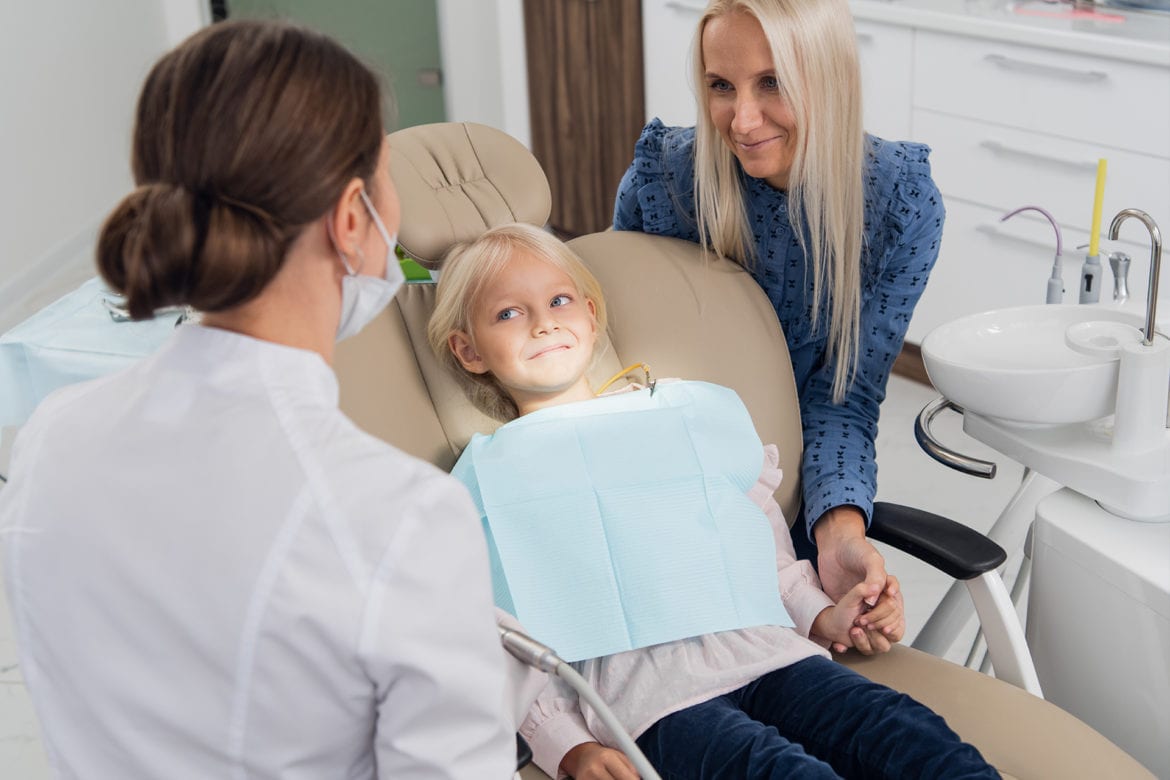A beautiful, healthy smile that lasts a lifetime is our ultimate goal when treating the children of St. Croix. A daily home care routine and a healthy diet play an important role in achieving that goal. At this time, we are only able to see patients for emergency dental care. Until Frederiksted Health Care Inc. resumes its full dental services, what people do at home to maintain healthy teeth and gums during the coronavirus pandemic is important.
Primary teeth or “baby” teeth are important! Baby teeth hold the space for adult teeth to grow into if extracted too soon, space closes leading to crowding are other developmental issues. Adult teeth begin to erupt around age six and are meant to last the child’s entire lifetime so early disease prevention is critical. Childhood cavities cause unnecessary pain, loss of school hours and lower grades, more time spent at the dentist, more money than preventative care, and can lead to traumatizing experiences or severe infection. Mechanically or physically removing plaque/food debris through brushing and interdental cleaning is the only effective way to prevent oral disease.
Below are instructions and tips about oral health care for children:
Babies should have their mouths cleaned even before the first tooth appears. Healthy teeth erupt from healthy gums. In the morning and at night, a damp clean cloth can be used to wipe the gums, cheeks and tongue. Avoid putting the baby to bed with a bottle or breast as this can increase the child’s risk of tooth decay (caries) and possibly lead to “bottle rot caries,” a more severe form of tooth decay. Visit the dentist by your baby’s first birthday to spot signs of problems early. Normal pacifier use during the first few years of life doesn’t cause long-term dental problems. However, prolonged pacifier use might cause a child’s teeth to be misaligned or not come in properly. Discontinue pacifier use by age three and discourage habitual finger sucking altogether.
Around six months of age, baby teeth begin to erupt from the gums. Use a smear (size of a grain of rice) of toothpaste on a soft-bristled brush to clean the teeth and gums gently. Make sure that all the surfaces of teeth are cleaned, including the inside, outside, and chewing surfaces. Children need assistance with brushing starting from their first tooth up until the child has developed good toothbrush control; some children benefit from assistance up to nine years of age. Even though most children have larger spaces between their baby teeth, flossing these spaces promotes positive lifelong habits. A floss pick is helpful navigating tight areas of a child’s mouth, plus the child can easily use them to practice on their own.
As children grow older and more of their permanent teeth come in, a rigorous daily dental hygiene routine is crucial to keeping teeth and gums healthy. Adult teeth erupt between ages six and 13. Pre-teens often lose interest in oral hygiene; an electric toothbrush or reminder that a healthy smile…

